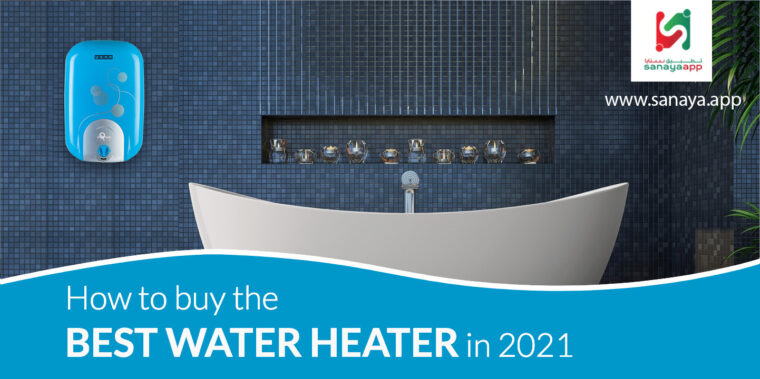How to buy the best water heaters in 2021?
Water heaters have become one of the must-have products in everyone’s house. Gone are the days when people use conventional methods to boil or heat the waters. It’s now the era where switching ON and OFF makes the work done with ease. Moreover, at this time many diverse companies and stores offer various technology heaters.
With the advancement of technology, there are different types of water heaters available in the market. Starting from fuel sources to storage tanks there are different types of water heaters available in the market. Based on requirements it is classified into industrial and commercial types of water heaters.
Industrial water heater systems are the ones in use for industrial purposes where a large volume of water is circulating in motion. It’s fondly is in use in thermal power plants, turbines and steel factories to make progress. At the same time, the commercial water heaters are small volume containers formally in use for individual houses and residential purposes.
Types Of Water Heater:
Besides the fact, they can be easily classified but finding the right requirement for your needs makes it a tricky job. This is because of the advancement of technologies and the variety of models available in the market. So to make your job easy in buying water heaters, we are going to discuss the essential facts in choosing them.
Further, the water heaters are classified basis on size, storage and energy fuel requirements.
Size of Water Heater – A water heater isn’t much good if it can’t keep up with your family’s demands. You’ll need to think about all of the times and methods you utilise hot water in your home.
Water Heater Type – As we’ll see, there are a variety of water heaters to choose from. Some, such as storage water heaters, are well-known, while others, such as newer water heater models, may be unfamiliar.
Type of Fuel – Electricity, natural gas, solar energy, or geothermal energy? To heat the water in your home, you can use a variety of different energy sources. Each has advantages and disadvantages that will make them more or less appropriate for your application.
Furthermore, we are going to look at the different dimensions and variants.
Water Heater Fuels:
Heating water commands the use of energy. The energy source you choose will be determined by the availability and pricing of available options, as well as the requirements of the heater you intend to install. The most regularly utilised energy sources are listed below.
Electricity – Electricity is frequently utilised for water heating in the UAE. It’s adaptable, working with storage, on-demand, and heat pump water heaters, as well as active solar systems, to help with water circulation.
Natural gas — If your home has gas, you should think about using it for storage and on-demand heaters.
LP gas- often known as propane, is widely available in UAE and can be in installation along with either storage or tankless water heaters.
Solar – In bright and warm climates like ours, solar energy is a viable choice. If the geography and position of your property allow for the installation of a solar system, you might save a lot of money on your water heating energy bills.
Geothermal energy– It is worth considering as a source of energy for water heating when utilised in conjunction with a heat pump water heater. It’s most useful when used in conjunction with other systems
Tank & Tankless Water Heaters :
There are several types of water heaters to consider, ranging from heat pumps to solar-powered units, but the most common are tank and tankless.
Traditional tank-style water heaters are large metal cylinders that store and reserve hot water for later use. Because their capacity ranges from 40 to 60 gallons and they are typically 60′′ tall by 24′′ wide, they are frequently in installation in areas like in basement or laundry room.
Tankless water heaters (also known as “on-demand” water heaters) heat water only when it is required. The system is not only more compact (typically 20′′ wide by 28′′ long by 10′′ deep) without a holding tank, but it is also more efficient because no hot water is stored (or compensating for its subsequent heat loss). Tank-style water heaters are typically less expensive than tankless models; however, tankless models have a longer lifespan: a traditional water heater typically lasts 10 to 13 years, whereas tankless water heaters can last up to 20 years.
Size of the Water Heater:
There are alternatives if your space does not allow for a standard-size water heater. These options offer the same level of performance and can be in usage with either electric or gas (natural or propane) systems.
Lowboys, also known as short water heaters. These units are narrower and shorter than a standard water heater. They hold the same amount of water as their larger counterparts while still fitting in tight spaces like crawlspaces and under cabinets. Lowboys range in size from 30 to 49 inches and can hold up to 50 gallons of water.
Tall Water Heaters- Tall water heaters range in height from 50 to 76 inches and can hold up to 100 gallons of water. They’re ideal for basements or garages where height isn’t a factor. Furthermore, hybrid water heaters require additional space to function properly, so consult the manufacturer’s instructions for proper installation.
Conclusion:
Always keep in mind to choose water heaters based on the size, energy fuel and storage. Binding these three factors will help you in choosing the best water heater for you. You can always visit the Electrical category in Sanaya App for assistance.


